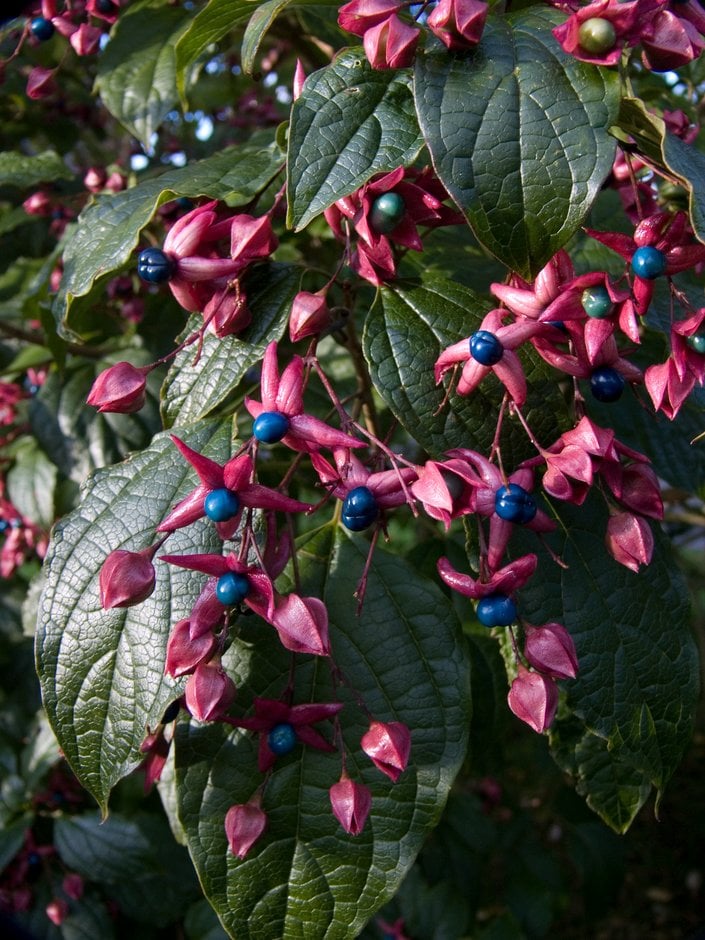Clerodendrum trichotomum
harlequin glorybower
A deciduous large shrub or small tree with variable simple leaves, larger on young plants, the lower ones sometimes deeply two- ot three-lobed towards the apex. Fragrant flowers are produced from midsummer to autumn in long-stalked cymes from the axils of the upper leaves. Corolla white, in a reddish calyx, which deepens in colour as the fruits ripen in autumn. Berries bright blue at first, ultimately black, contrasting with the red calyces
Size
Ultimate height
4–8 metresTime to ultimate height
10–20 yearsUltimate spread
4–8 metresGrowing conditions
Moisture
Moist but well–drainedpH
Acid, Alkaline, NeutralColour & scent
| Stem | Flower | Foliage | Fruit | |
| Spring | Green | |||
|---|---|---|---|---|
| Summer | White | Green | ||
| Autumn | White | Green | Blue | |
| Winter |
Position
- Full sun
- Partial shade
Aspect
South–facing
Exposure
Sheltered Hardiness
H5Botanical details
- Family
- Lamiaceae
- Native to GB / Ireland
- No
- Foliage
- Deciduous
- Habit
- Bushy
- Genus
Clerodendrum can be deciduous or evergreen shrubs, trees or climbers, with simple, often unpleasantly scented, leaves and panicles of usually fragrant salver-shaped flowers with prominent stamens, followed by small berries
- Name status
Correct
- Plant range
- Far East
How to grow
Cultivation
Grow in humus-rich moist soil in a sheltered position in sun or partial shade
Propagation
Propagate by root cuttings or semi-hardwood cuttings
Suggested planting locations and garden types
- Cottage and informal garden
- Low Maintenance
Pruning
Pests
May be susceptible to mealybugs, glasshouse red spider mite and glasshouse whitefly
Diseases
May be susceptible to honey fungus (rarely)
Love gardening
Sign up to receive regular gardening tips, inspiration, offers and more
View our Privacy Policy
Get involved
The Royal Horticultural Society is the UK’s leading gardening charity. We aim to enrich everyone’s life through plants, and make the UK a greener and more beautiful place.
